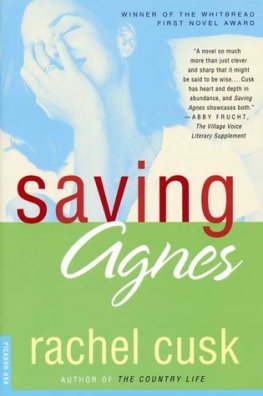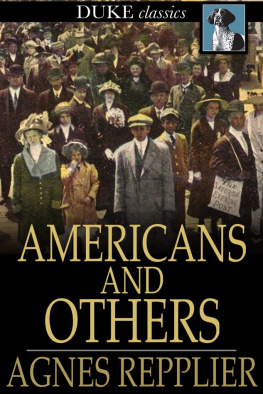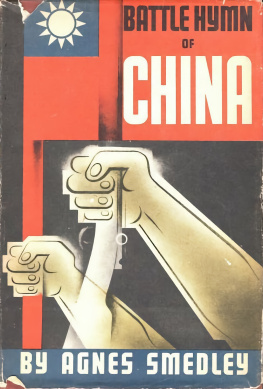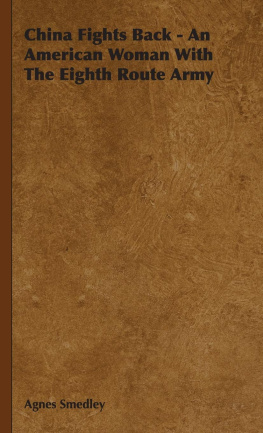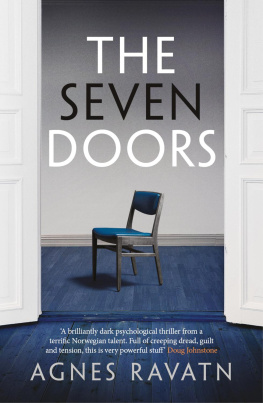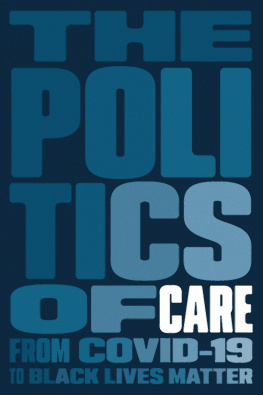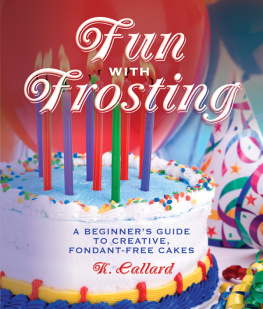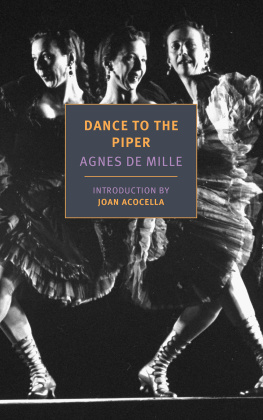Agnes Callard - On Anger (Boston Review / Forum)
Here you can read online Agnes Callard - On Anger (Boston Review / Forum) full text of the book (entire story) in english for free. Download pdf and epub, get meaning, cover and reviews about this ebook. year: 2020, publisher: MIT Press, genre: Romance novel. Description of the work, (preface) as well as reviews are available. Best literature library LitArk.com created for fans of good reading and offers a wide selection of genres:
Romance novel
Science fiction
Adventure
Detective
Science
History
Home and family
Prose
Art
Politics
Computer
Non-fiction
Religion
Business
Children
Humor
Choose a favorite category and find really read worthwhile books. Enjoy immersion in the world of imagination, feel the emotions of the characters or learn something new for yourself, make an fascinating discovery.

- Book:On Anger (Boston Review / Forum)
- Author:
- Publisher:MIT Press
- Genre:
- Year:2020
- Rating:5 / 5
- Favourites:Add to favourites
- Your mark:
- 100
- 1
- 2
- 3
- 4
- 5
On Anger (Boston Review / Forum): summary, description and annotation
We offer to read an annotation, description, summary or preface (depends on what the author of the book "On Anger (Boston Review / Forum)" wrote himself). If you haven't found the necessary information about the book — write in the comments, we will try to find it.
On Anger (Boston Review / Forum) — read online for free the complete book (whole text) full work
Below is the text of the book, divided by pages. System saving the place of the last page read, allows you to conveniently read the book "On Anger (Boston Review / Forum)" online for free, without having to search again every time where you left off. Put a bookmark, and you can go to the page where you finished reading at any time.
Font size:
Interval:
Bookmark:
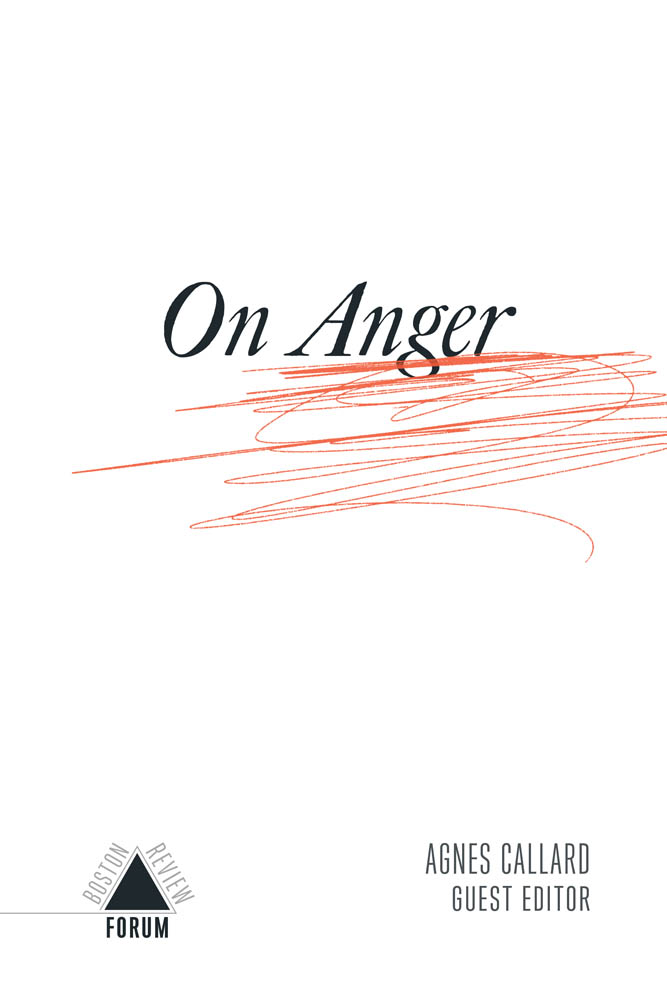
Editors-in-Chief Deborah Chasman & Joshua Cohen
Executive Editor Chloe Fox
Managing Editor and Arts Editor Adam McGee
Senior Editor Matt Lord
Engagement Editor Rosie Gillies
Contributing Editors Junot Daz, Adom Getachew, Walter Johnson, Robin D.G. Kelley, Lenore Palladino
Contributing Arts Editors Ed Pavli & Evie Shockley
Editorial Assistant Thayer Anderson
Marketing and Development Manager Dan Manchon
Finance Manager Anthony DeMusis III
Distributor The MIT Press, Cambridge, Massachusetts,and London, England
Printer Sheridan PA
Board of Advisors Derek Schrier (chairman), Archon Fung, Deborah Fung, Alexandra Robert Gordon, Richard M. Locke, Jeff Mayersohn, Jennifer Moses, Scott Nielsen, Robert Pollin, Rob Reich, Hiram Samel, Kim Malone Scott
Interior Graphic Design Zak Jensen & Alex Camlin
Cover Design Alex Camlin
On Anger is Boston Review Forum 13 (45.1)
To become a member, visit:bostonreview.net/membership/
For questions about donations and major gifts,contact: Dan Manchon, dan@bostonreview.net
For questions about memberships, call 877-406-2443 or email Customer_Service@bostonreview.info.
Boston Review
PO Box 425786, Cambridge, ma 02142
617-324-1360
issn: 0734-2306 / isbn: 978-1-946511-54-6
Authors retain copyright of their own work.
2020, Boston Critic, Inc.
d_r0
Deborah Chasman & Joshua Cohen
Agnes Callard
Paul Bloom
Elizabeth Bruenig
Desmond Jagmohan
Daryl Cameron & Victoria Spring
Myisha Cherry
Jesse Prinz
Rachel Achs
Barbara Herman
Oded Naaman
Agnes Callard
Judith Butler interviewed by Brandon M. Terry
David Konstan
Martha C. Nussbaum
Whitney Phillips
Amy Olberding
Deborah Chasman & Joshua Cohen
FEEL GOOD. Feel better. Move forward. Let it go, Claudia Rankine writes in her poem Citizen, in the internal monologue of a black woman trying to move past anger over racial wrongs.
Rankine depicts a familiar sensibility about anger: yes, we sometimes have good reason for getting angrywe feel wronged, after allbut there are all kinds of reasons for (eventually) letting it go. Even if our anger is righteous, perpetual anger is destructivewhether for its bearer or for society.
In our forum, philosopher Agnes Callard challenges this conventional view. Perhaps we shouldnt let our anger go. Our reasons for being angry are eternal, arent they? No apology or redress ever erases the original injury that provoked the anger in the first place. The affective response to injustice clings to the taste of blood, she writes. Once you have a reason to be angry, you have a reason to be angry forever.
Reflecting on two millennia of debates about the value of anger, Callard contends that we have been asking the wrong question. The effort to distinguish righteous forms of anger from unjust vengeance, or appropriate responses to wrongdoing from inappropriate ones, is misguided. Maybe anger is not a bug of human life, but a featurean emotion that, for all its troubling qualities, is an essential part of being a moral agent in an imperfect world. And if it is both troubling and essential, what, then, do we do with the implications that angry victims of injustice are themselves morally compromised, and that it might not be possible to respond rightly to being treated wrongly. Because anger cannot be morally pure, Callard draws the bracing conclusion: We cant be good in a bad world.
The forum responses and essays that follow explore anger in its many formspublic and private, personal and political. With anger looming so large in our public life, these are issues we all must grapple with. Does the vast well of public anger compromise all of us?
Agnes Callard
S uppose that you are angry on Tuesday because I stole from you on Monday. Suppose that on Wednesday I return what I stole; I compensate you for any disadvantage occasioned by your not having had it for two days; I offer additional gifts to show my good will; I apologize for my theft as a moment of weakness; and, finally, I promise never to do it again. Suppose, in addition, that you believe my apology is sincere and that I will keep my promise.
Could it be rational for you to be just as angry on Thursday as you were on Tuesday? Moreover, could it be rational for you to conceive of a plan to steal from me in turn? And what if you dont stop at one theft: could it be rational for you to go on to steal from me again, and again, and again?
Though your initial anger at me might have been reasonable, we tend to view a policy of unending disproportionate revenge as paradigmatically irrational. Eventually we should move on, we are told, or let it go, or transmute our desire for revenge into a healthier or more respectable feeling. This idea has given rise to a debate among academic philosophers about the value of anger. Should we valorize it in terms of the righteous indignation of that initial response? Or should we vilify it in terms of the grudge-bearing vengeance of the unending one?
I am going to explain how that debate goes, but I am not going to try to resolve it. Instead, I am going to peel it away to reveal a secret that lies behind it: we have been debating the wrong issue. The real debate concerns the three questions about anger and rationality in my second paragraph, which are not rhetorical, and to which the answer might well be: yes, yes, and yes.
FIRST, the academic debate. In one corner, we have those who think that we would have a morally better world if we could eradicate anger entirely. This tradition has its roots in ancient Stoicism and Buddhism. The first-century Roman philosopher and statesman Seneca wrote that anger is a form of madness; he authored a whole treatiseDe Ira, the title of this volumeabout how to manage its ill effects. The eighth-century Indian philosopher and monk ntideva enjoined those wishing to travel the road of enlightenment to eliminate even the smallest seeds of anger, on the grounds that the full-blown emotion can only cause harm.
In the contemporary world, the philosopher Martha Nussbaum draws on Seneca and the Stoic tradition to argue that anger is an intrinsically mistaken attitude, since it is infected with a backward-looking payback wish that is vengeful and destructive. The correct response to any setback or injustice, in her view, isforward-looking: preventing similar events from occurring in the future. In a similar vein, Owen Flanagan, who draws on both ntidevas Buddhism and a Confucian-inflected metaphysics, sees anger as an intrinsically hostile attitude, one that falsely presupposes a self-centered metaphysics of individuals who possess intentions to be cruel, and to do harm or evil.
In the other corner of the debate stand those who conceive of angerup to a pointas an essential and valuable part of ones moral repertoire: anger is what sensitizes us to injustice and motivates us to uphold justice. By being angry with me on Tuesday, the day after I stole, you create the system and demand the terms under which I must acquiesce and make things right on Wednesday.
This pro-anger position has its roots in Aristotles view that the (well-trained) passions are what allow the eye of the soul to perceive moral value, and finds its fullest expression in the British moral sentimentalists of the seventeenth and eighteenth centuries. The Earl of Shaftesbury, Frances Hutcheson, David Hume, and Adam Smith all held that our feelings are precisely what sensitize us to moral considerations.
Next pageFont size:
Interval:
Bookmark:
Similar books «On Anger (Boston Review / Forum)»
Look at similar books to On Anger (Boston Review / Forum). We have selected literature similar in name and meaning in the hope of providing readers with more options to find new, interesting, not yet read works.
Discussion, reviews of the book On Anger (Boston Review / Forum) and just readers' own opinions. Leave your comments, write what you think about the work, its meaning or the main characters. Specify what exactly you liked and what you didn't like, and why you think so.

